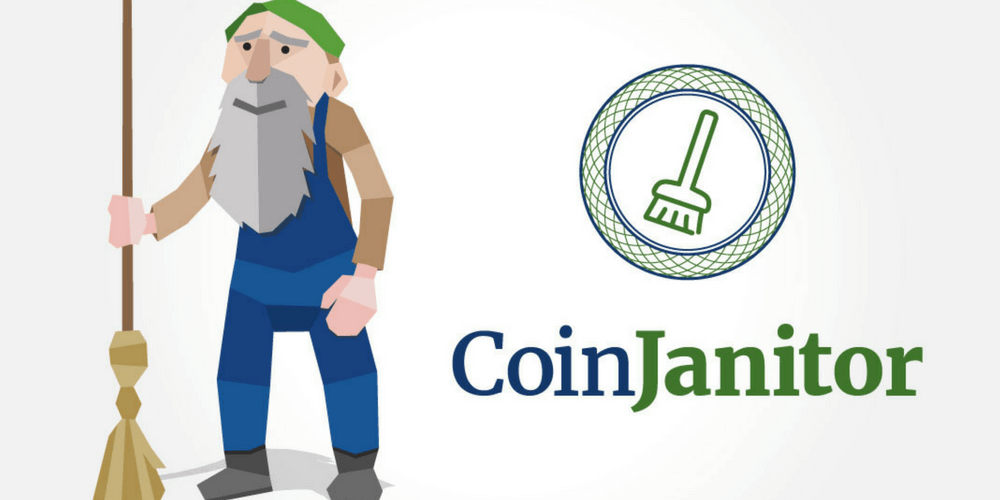
CoinJanitor captures trapped value from inactive and failed cryptocurrency projects and restores it to the active cryptocurrency market, bringing value to investors and the cryptocurrency ecosystem as a whole.rn
There are two important questions that arise for prospective contributors with just about every blockchain startup these days.
- Why does this project need its own coin or token rather than just using an established cryptocurrency such as Bitcoin or Ethereum?
- What is the coin or token’s value proposition? In other words, how will its value increase in the future?
Creating the JAN Token
The CoinJanitor project is designed to strengthen the cryptocurrency market from the bottom up. The process for doing so starts with buying out abandoned and untradeable coins – also called dead coins – that are trapping value on their inactive blockchains. CoinJanitor’s native cryptocurrency, JAN, is an essential tool in that process, and its benefits could not be matched by using another cryptocurrency that’s not specific to the project.
In order to purchase dead coins, CoinJanitor needs to use its own currency to avoid giving those dead coins the liquidity they don’t have. JAN tokens not only give the project a means of raising the initial capital that it will need to operate, but it will also create a single choice in the market for dead coin holders to trade their coins in without the need for an exchange.
Should JAN’s value rise over time, it will also become increasingly cheaper for CoinJanitor to buy out each successive project relative to previous buyouts. As a result, CoinJanitor will be able to clean up hundreds or perhaps even thousands of dead projects and restore their lost value back into the active cryptocurrency market, without giving dead coins a lifeline in the market or creating opportunities for pump and dump schemes.
However, that still leaves the question of why JAN’s value should rise over time? That answer has multiple parts.
JAN’s Value Proposition
First and foremost, JAN will increase in value because of the project’s unique community growth mechanism. Every time that CoinJanitor buys out an inactive project, that project’s coin holders will receive JAN tokens and be introduced to the CoinJanitor project. From there, they will face a choice between trading their JAN tokens for other currencies or holding.
Human psychology plays to JAN’s favor here, as most people will likely choose an inactive approach and hold on to their new tokens in hopes of regaining value rather than making the effort to trade them for pennies on the dollar relative to their initial holdings. Not only that, but it’s money that all of those coin holders will have assumed was lost when the original project failed. That further increases the odds that they would be willing to speculate on JAN’s value increasing rather than immediately cashing out for an insignificant sum. As a result of those factors, the CoinJanitor community will be constantly integrating new users under a single umbrella, contributing to a powerful network effect that increases demand for JAN with each project that the team buys out.
Community growth certainly isn’t the only factor influencing JAN’s value, though. Another significant part of the business model is CoinJanitor’s world-leading cryptocurrency database. In the process of researching different projects, CoinJanitor has already collected extensive data on thousands of cryptocurrencies and will continue adding to the collection indefinitely. The database includes information about key factors like code, as well as transaction history and metadata that the CoinJanitor team will analyze for each blockchain it decommissions. In time, this database can become a valuable resource to produce market analysis tools that will serve the entire cryptocurrency ecosystem.
Moreover, CoinJanitor will curate the code of decommissioned projects and make it easily accessible to the public in an open source blockchain library. This could help many developers to save time working on features for active projects and to learn from the mistakes of past developers. Not to mention the fact that the CoinJanitor team will be more familiar with the blockchain library than anybody else, enabling them to use it to build tools that can be offered to the CoinJanitor community.
Finally, after agreeing to buyout terms, CoinJanitor will also take control of additional materials and tools from failed projects including marketing and technological assets such as unreleased code. These assets can potentially be used to expand the CoinJanitor community as well as to develop new tools for better recycling resources from failed projects back into future ones.
Given all of the factors described above, JAN presents itself as an appealing investment opportunity for cryptocurrency enthusiasts. As the only project of its kind that can restore value to dead coin holders, CoinJanitor is poised to clean up the cryptocurrency market and provide significant value to contributors in the process.
JAN ICO Details
The JAN ICO went live on May 1st and will end on May 31st or once the $7.5 million hard cap is hit.
50% of the total JAN supply will be sold to the public during the ICO. Of the remaining half, 30% will be held by the project to buy out dead coins, 5% will be reserved for project’s partners, 5% will go towards a bounty program, and the final 10% will be distributed to founders, team members, and future employees. Team members will not be able to sell their JAN tokens until 2019.
To join the CoinJanitor team in cleaning up the cryptocurrency market, visit the project website, join the community on Facebook, Twitter, and YouTube, or follow the live discussions held on Telegram.

